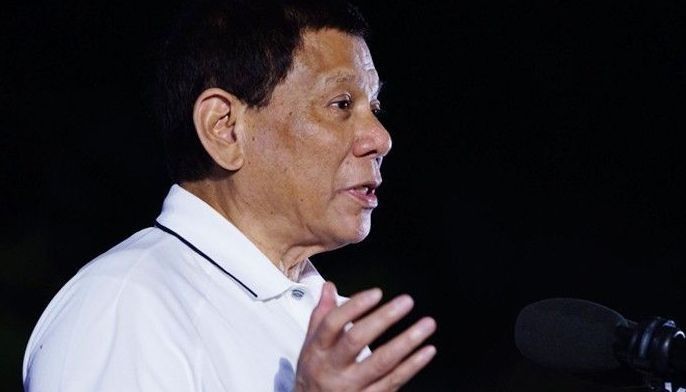Duterte announces Philippines' withdrawal from ICC

President Duterte on Wednesday said that he was withdrawing Manila's ratification of the Rome Statute, a little more than a month after a prosecutor of the International Criminal Court announced a preliminary examination of the alleged extrajudicial killings in the Philippines. File
MANILA, Philippines (Updated 5:06 p.m.) — Citing “outrageous” attacks on him and his administration and the supposedly illegal attempt by an International Criminal Court prosecutor to place him under its jurisdiction, President Rodrigo Duterte on Wednesday announced that he is withdrawing the Philippines from its ratification of the Rome Statute effective immediately.
Early in February, International Criminal Court special prosecutor Fatou Bensouda, announced that she was initiating a preliminary examination into allegations of extrajudicial killings in the Philippines to see if these fall into the court's jurisdiction and if a full-blown investigation is needed.
Duterte since then has lambasted several United Nations officials and stressed that the ICC would not have jurisdiction over him. The Palace was quick to point out then that the examination was not the same as an investigation. Bensouda's office has yet to determine whether it does have jurisdiciton.
The Rome Statute is the international treaty that established the International Criminal Court and was adopted in 1998. The Philippines ratified the treaty in 2011.
'ICC being used vs Philippines'
Duterte said it was apparent that the ICC is "being utilized as a political tool against the Philippines."
"The very considerations upon which the Philippines agreed to be a signatory to the Rome Statute have not been observed, not complied with, hence the rescission of such agreement or the withdrawal of our country's ratification of the Rome Statute is in order," Duterte said in a statement.
"Given the baseless, unprecedented and outrageous attacks on my person as well as against my administration, engineered by officials of the United Nations as well as an attempt by the International Criminal Court special prosecutor to place my person within the jurisdiction of the International Criminal Court...I therefore declare and forthwith give notice. as president of the Republic of the Philippines, that the Philippines is withdrawing its ratification of the Rome Statute effective immediately."
Duterte previously said that the ICC would "never never never" have jurisdiction over him and maintained that his controversial crackdown on narcotics would continue until he steps down.
READ: Fact check: Does the ICC have jurisdiction over Duterte?
ICC jurisdiction
The International Criminal Court was established to investigate, prosecute and try individuals accused of genocide, crimes against humanity, war crimes and the crime of aggression.
The ICC defines crimes against humanity a "widespread or systemic attack directed against any civilian population." Such attacks include murder, extermination, rape, sexual slavery, enforced disappearance of persons and the crime of apartheid.
Such acts can also be penalized under domestic law through Republic Act 9851 or the Philippine Act on Crimes Against International Humanitarian Law, Genocide, and Other Crimes Against Humanity.
"For the first time in the history of humankind, States decided to accept the jurisdiction of a permanent international criminal court for the prosecution of the perpetrators of the most serious crimes committed in their territories or by their nationals after the entry into force of the Rome Statute on 1 July 2002," the ICC primer reads.
The ICC is not a substitute for national courts and can only intervene when a State is "unable or unwilling genuinely to carry out the investigation and prosecute the perpetrators."
By ratifying the Rome Statute in 2011, the Philippines became a party and accepted the international court's jurisdiction.
"The court's jurisdiction will not be retroactive. It can only address crimes committed after the entry into force of the Statute and the establishment of the court," the ICC said.
Withdrawal will not stop proceedings
Under Article 127 of the Rome Statute, a state party may withdraw from the treaty through a written notification addressed to the UN secretary-general. The withdrawal will take effect a year after the date of receipt of the notification.
However, criminal investigations and proceedings will still continue once it started before the withdrawal was effective.
"A State shall not be discharged, by reason of its withdrawal, from the obligations arising from this Statute while it was a Party to the Statute, including any financial obligations which may have accrued. Its withdrawal shall not affect any cooperation with the Court in connection with criminal investigations and proceedings in relation to which the withdrawing State had a duty to cooperate and which were commenced prior to the date on which the withdrawal became effective, nor shall it prejudice in any way the continued consideration of any matter which was already under consideration by the Court prior to the date on which the withdrawal became effective," the statute reads. — with a report by Patricia Lourdes Viray
- Latest
- Trending





























